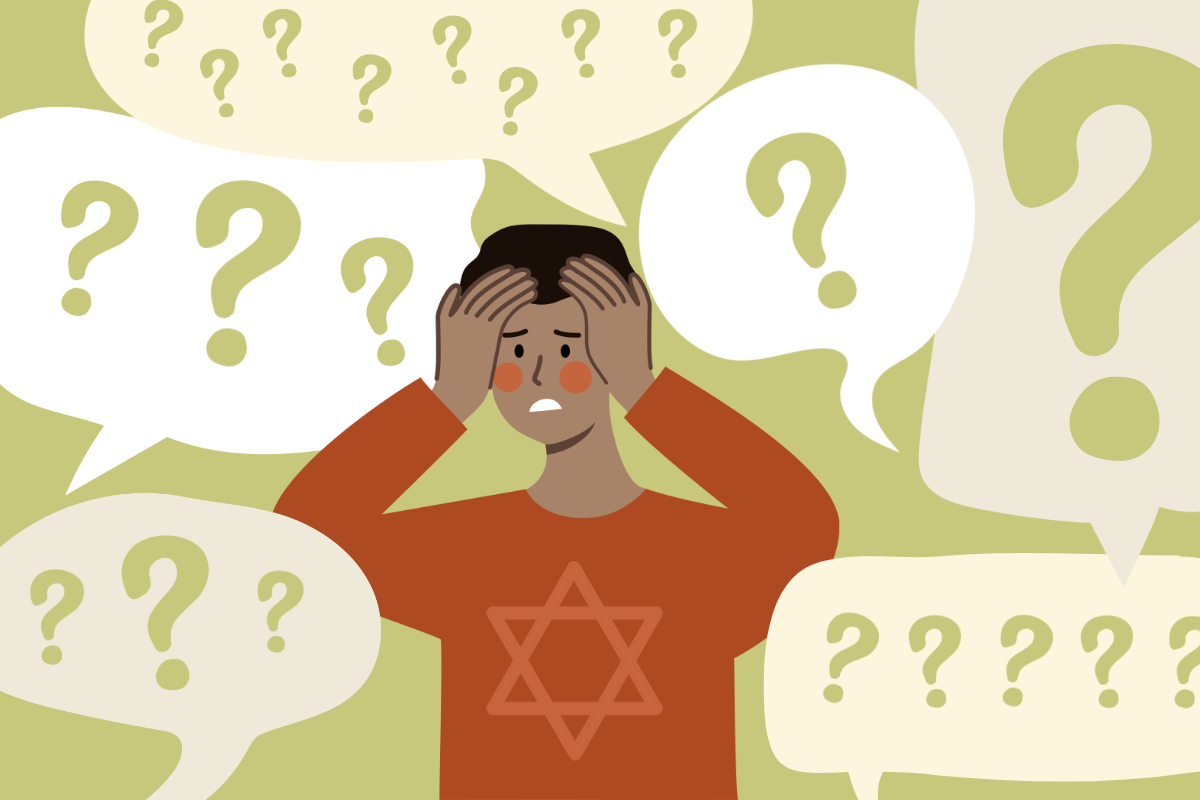Having lived in the Deep South during college, then in South America and now in Spain, I am often the first and only Jew that people around me have ever met. I’m starting to think that, even though I tend to be the sole Jew around, I can’t be the only Jew who’s experienced this — there aren’t too many of us out there, after all. So, I guess my far-flung Jewish peers and I make up a patchwork network of unofficial Jewish ambassadors.
I’m unsure of when I interviewed for this job, and I can tell you the pay isn’t great (you can’t live off bar mitzvah savings through your 20s). I love being a part of our community, but after a first introduction to whatever curious stranger I’ve met, I’ve learned to expect about a thousand questions about what it’s like to be a Jew — a litmus test of all the stereotypes and stories they’ve ever heard. I do my best to answer everything people throw at me, no matter how insensitive they may appear.
And my public expects in-depth, specific knowledge. Every time I go through this process, I’m faced with a pop quiz on our culture, from the meaning of the Star of David to why we wear yarmulkes to the practices of Hasidic Jews — not to mention having to deal with the less benign questions that are really just stereotypes with question marks at the end. “Do all Jews have big noses?” “Does your family have a lot of money?” And then there’s the always-pending Israel question, because you know it’s coming at some point in this conversation.
This can get tiring quickly — and worse, I often feel that I am not the mensch for the job. I grew up in a kosher household, went to Hebrew school and attended services every Saturday through my bar mitzvah, so I have a decent grasp of the general beliefs of our people. But I have not practiced our traditions often since leaving for college, and I shrug off several Jewish laws with my many tattoos and my love for everything pork. This leads me to feel like maybe I should be directing all these questions to some verified source, a Rabbi’s twitter account or something. I worry that in my scramble to give these strangers or new friends an answer that I’m getting it wrong — that I’m making things up or confusing my own family’s traditions with ones that are actually part of our culture. I’m scared that I’m just adding to the misinformation swirling around the world, that I’m part of the problem.
There are so many kinds of Jews, and our history is such a long one, that there’s just no way that I could ever get it all right — even if I weren’t attempting to translate Jewish terminology from English into Spanish half the time. So, whenever I say goodbye to these new acquaintances, I’m left carrying this anxiety that I have not done a good enough job, that I’ve let our community down.
But at the end of the day, what I try and remind myself — and what I would like to tell other Jews living around the world who are also working this unpaid internship of Jewish ambassador — is that if someone is asking questions, it is because they are curious. If we can give them any kind of insight into our culture and our experiences, it can help to spread understanding. Creating any kind of human connection is important because the next time that stranger or new friend meets a Jew, they won’t be starting from square one. Each of these interactions carries something special as we share our culture with the world.
The more people we interact with, the more we diversify the image of what a Jew can look like, creating more acceptance of how many different versions of us exist: from Ashkenazi to Sephardic, from Jews who eat bacon on Saturday mornings to those of who wear a yarmulke everywhere we go.
So, it doesn’t matter if you can’t answer every question that’s thrown at you. Who knows why we dress up in costumes on Purim, anyway? The important part is to attempt to help people make a connection with our culture, I’ve personally found that a good place to start is with Rosh Hashanah traditions. Everyone loves apples and honey!
To all my unofficial Jewish ambassadors: I know you’re tired, but don’t stop answering questions. Especially in today’s environment, where misinformation is rampant and antisemitism is on the rise, the best thing we can do is sit down and have a conversation with a stranger, share, connect and show them, just by being ourselves, how many ways there are to be Jewish.



